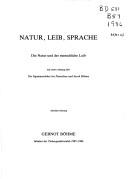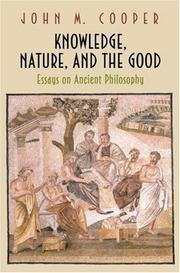| Listing 1 - 8 of 8 |
Sort by
|
Book
Year: 1978 Publisher: Padova : Liviana,
Abstract | Keywords | Export | Availability | Bookmark
 Loading...
Loading...Choose an application
- Reference Manager
- EndNote
- RefWorks (Direct export to RefWorks)
Book
Year: 1978 Publisher: Padova : Liviana,
Abstract | Keywords | Export | Availability | Bookmark
 Loading...
Loading...Choose an application
- Reference Manager
- EndNote
- RefWorks (Direct export to RefWorks)

ISBN: 9070116065 Year: 1982 Publisher: Rotterdam Erasmus Universiteit
Abstract | Keywords | Export | Availability | Bookmark
 Loading...
Loading...Choose an application
- Reference Manager
- EndNote
- RefWorks (Direct export to RefWorks)
Book
Year: 1945 Publisher: Louvain : Bibliothèque de l'Université,
Abstract | Keywords | Export | Availability | Bookmark
 Loading...
Loading...Choose an application
- Reference Manager
- EndNote
- RefWorks (Direct export to RefWorks)
Fate and fatalism --- Astrology --- Theology, Doctrinal --- Destin et fatalisme --- Astrologie --- Théologie dogmatique --- History --- Histoire --- Carneades,
Book
ISBN: 9025606466 9789025606466 Year: 1973 Volume: 19 Publisher: Amsterdam: Hakkert,
Abstract | Keywords | Export | Availability | Bookmark
 Loading...
Loading...Choose an application
- Reference Manager
- EndNote
- RefWorks (Direct export to RefWorks)
Carneades, --- Carneades --- Destiny --- Fatalism --- Horoscopy --- -Carneades --- -Destiny --- Astrology --- Fate and fatalism --- Theology, Doctrinal --- Fortune --- Philosophy --- Necessity (Philosophy) --- Astronomy, Medieval --- Occultism --- History --- Carneade, --- Karneades, --- Karniyādis al-Qūrīnāʼī, --- Destin et fatalisme --- Astrologie --- Théologie dogmatique --- Histoire --- Liberté --- Pères de l'Église --- Theology, Doctrinal - History - Early church, ca. 30-600 --- Philosophie grecque
Multi
ISSN: 22950176 ISBN: 9782503565453 250356545X Year: 2016 Volume: 21 Publisher: Bruxelles: Brepols,
Abstract | Keywords | Export | Availability | Bookmark
 Loading...
Loading...Choose an application
- Reference Manager
- EndNote
- RefWorks (Direct export to RefWorks)
Dans le langage commun, le scepticisme apparaît comme l’opposé de la religion. Cette opposition est le produit d’une histoire, d’une relation diachronique aussi tumultueuse que forte. La richesse de ce processus a été mise en évidence par les travaux, notamment de Popkin, portant sur la Renaissance et le « libertinage ». En revanche, la question a été beaucoup moins approfondie pour l’Antiquité et le Moyen Âge. Les contributions réunies dans ce volume, qui vont de la philosophie hellénistique à la philosophie médiévale, visent donc à repenser sans préjugé la totalité du problème, avec l’espoir d’aboutir à une représentation nouvelle du lien ou de l’absence de lien entre ces deux éléments fondamentaux de la pensée occidentale.
Scepticisme --- Philosophie et religion --- Carnéade --- Philon d'Alexandrie, --- Plutarque, --- Sextus Empiricus, --- Lactance, --- Grégoire de Nysse, --- Augustin, --- Jean de Salisbury, --- Gerson, Jean de, --- Critique et interprétation --- Philosophy and religion --- Skepticism --- Philo Alexandrinus, --- Plutarchus Chaeronensis, --- Lactantius, Lucius Caecilius Firmianus --- Scepticisme (philosophie grecque) --- Histoire --- Skepticism. --- Religion --- Philosophy and religion. --- Neoplatonism. --- Philosophy, Medieval. --- Scepticisme. --- Philosophie et religion. --- Néo-platonisme. --- Philosophie médiévale. --- Philosophy. --- Philosophie. --- Philosophy, Ancient --- History --- Carneades, --- Philon d'Alexandrie --- Plutarque --- Grégoire de Nysse --- Augustin --- Sextus Empiricus --- Lactance --- Jean de Salisbury --- Philo Alexandrinus, - 0030? av. J.-C.-0040? --- Plutarchus Chaeronensis, - 0046?-0120? --- Sextus Empiricus, - 0150?-0210? --- Grégoire de Nysse --- Critique et interprétation --- Gerson, Jean

ISBN: 0691117241 0691117233 9786612087080 1282087088 1400826446 9781400826445 9780691117232 9780691117249 Year: 2004
Abstract | Keywords | Export | Availability | Bookmark
 Loading...
Loading...Choose an application
- Reference Manager
- EndNote
- RefWorks (Direct export to RefWorks)
Knowledge, Nature, and the Good brings together some of John Cooper's most important works on ancient philosophy. In thirteen chapters that represent an ideal companion to the author's influential Reason and Emotion, Cooper addresses a wide range of topics and periods--from Hippocratic medical theory and Plato's epistemology and moral philosophy, to Aristotle's physics and metaphysics, academic scepticism, and the cosmology, moral psychology, and ethical theory of the ancient Stoics. Almost half of the pieces appear here for the first time or are presented in newly expanded, extensively revised versions. Many stand at the cutting edge of research into ancient ethics and moral psychology. Other chapters, dating from as far back as 1970, are classics of philosophical scholarship on antiquity that continue to play a prominent role in current teaching and scholarship in the field. All of the chapters are distinctive for the way that, whatever the particular topic being pursued, they attempt to understand the ancient philosophers' views in philosophical terms drawn from the ancient philosophical tradition itself (rather than from contemporary philosophy). Through engaging creatively and philosophically with the ancient texts, these essays aim to make ancient philosophical perspectives freshly available to contemporary philosophers and philosophy students, in all their fascinating inventiveness, originality, and deep philosophical merit. This book will be treasured by philosophers, classicists, students of philosophy and classics, those in other disciplines with an interest in ancient philosophy, and anyone who seeks to understand philosophy in philosophical terms.
Ancient philosophy --- Antieke filosofie --- Filosofie [Antieke ] --- Filosofie [Griekse ] --- Filosofie [Romeinse ] --- Filosofie van de Oudheid --- Greek philosophy --- Griekse filosofie --- Philosophie ancienne --- Philosophie antique --- Philosophie de l'Antiquité --- Philosophie grecque --- Philosophie romaine --- Philosophy [Ancient ] --- Philosophy [Greek ] --- Philosophy [Roman ] --- Roman philosophy --- Romeinse filosofie --- Philosophy, Ancient. --- Knowledge, Theory of --- Naturalism --- Good and evil --- Théorie de la connaissance --- Naturalisme --- Bien et mal --- #GGSB: Filosofie --- #GGSB: Filosofie (oudheid) --- Théorie de la connaissance --- Philosophy, Greek --- Philosophy, Roman --- Philosophy, Ancient --- Filosofie --- Filosofie (oudheid) --- Academic skepticism. --- Alexander Nehamas. --- Alexander of Aphrodisias. --- Analogy. --- Antiochus of Ascalon. --- Aristotle. --- Arius Didymus. --- Atomism. --- Awareness. --- Cambridge University Press. --- Carneades. --- Chrysippus. --- Concept. --- Counterargument. --- Criticism. --- Democritus. --- Determinism. --- Dialectician. --- Disease. --- Empedocles. --- Epictetus. --- Epicureanism. --- Epicurus. --- Epistemology. --- Ethics. --- Eudaimonia. --- Existence. --- Explanation. --- Explication. --- Eye color. --- Feeling. --- First principle. --- Four causes. --- Glaucon. --- God. --- Good and evil. --- Hedonism. --- Hiero (Xenophon). --- Hypothesis. --- Illustration. --- Immanuel Kant. --- Indication (medicine). --- Inference. --- Ingredient. --- Inquiry. --- Isocrates. --- Lecture. --- Loeb Classical Library. --- Materialism. --- Methodology. --- Morality. --- Mutatis mutandis. --- Natural kind. --- On Ancient Medicine. --- Ontology. --- Parmenides. --- Phenomenon. --- Philosopher. --- Philosophical analysis. --- Philosophical methodology. --- Philosophical theory. --- Philosophy. --- Physician. --- Plato. --- Platonism. --- Potentiality and actuality. --- Practical reason. --- Pre-Socratic philosophy. --- Premise. --- Principle. --- Protagoras. --- Pyrrhonism. --- Quantity. --- Rationality. --- Reality. --- Reason. --- Requirement. --- Rhetoric. --- Self-sufficiency. --- Semen. --- Sextus Empiricus. --- Skepticism. --- Socratic method. --- Socratic. --- Stoicism. --- Suggestion. --- Teleology. --- The Philosopher. --- Theaetetus (dialogue). --- Theoretical physics. --- Theory of Forms. --- Theory. --- Thought. --- Treatise. --- Uncertainty. --- Understanding. --- Value theory. --- Virtue. --- W. D. Ross. --- Writing.
Book
ISBN: 0691066973 1322006245 0691610339 1400858321 0691638462 9781400858323 9780691066974 9780691610337 Year: 1986 Publisher: Princeton University
Abstract | Keywords | Export | Availability | Bookmark
 Loading...
Loading...Choose an application
- Reference Manager
- EndNote
- RefWorks (Direct export to RefWorks)
When Philip Sidney defends poetry by defending the methods used by poets and lawyers alike, he relies on the traditional association between fiction and legal procedure--an association that begins with Aristotle. In this study Kathy Eden offers a new understanding of this tradition, from its origins in Aristotle's Poetics and De Anima, through its development in the psychological and rhetorical theory of late antiquity and the Middle Ages, to its culmination in the literary theory of the Renaissance.Originally published in 1986.The Princeton Legacy Library uses the latest print-on-demand technology to again make available previously out-of-print books from the distinguished backlist of Princeton University Press. These editions preserve the original texts of these important books while presenting them in durable paperback and hardcover editions. The goal of the Princeton Legacy Library is to vastly increase access to the rich scholarly heritage found in the thousands of books published by Princeton University Press since its founding in 1905.
Law and literature. --- Literature --- Philosophy. --- Aristotle. --- 875 ARISTOTELES --- 1 <38> ARISTOTELES --- Law and literature --- Literature and law --- 1 <38> ARISTOTELES Griekse filosofie--ARISTOTELES --- Griekse filosofie--ARISTOTELES --- 875 ARISTOTELES Griekse literatuur--ARISTOTELES --- Griekse literatuur--ARISTOTELES --- Aristoteles. --- Aristoteles --- Aristote --- Aristotle --- Aristotile --- Contributions in philosophy of literature. --- Ἀριστοτέλης. --- Literature and philosophy --- Philosophy and literature --- Theory --- Philosophy --- Arisṭāṭṭil --- Aristo, --- Aristotel --- Aristotele --- Aristóteles, --- Aristòtil --- Arisṭū --- Arisṭūṭālīs --- Arisutoteresu --- Arystoteles --- Ya-li-shih-to-te --- Ya-li-ssu-to-te --- Yalishiduode --- Yalisiduode --- Ἀριστοτέλης --- Αριστοτέλης --- Аристотел --- ארסטו --- אריםטו --- אריסטו --- אריסטוטלס --- אריסטוטלוס --- אריסטוטליס --- أرسطاطاليس --- أرسططاليس --- أرسطو --- أرسطوطالس --- أرسطوطاليس --- ابن رشد --- اريسطو --- Pseudo Aristotele --- Pseudo-Aristotle --- Aeschylus. --- Against the Sophists. --- Allegory. --- An Apology for Poetry. --- Anagnorisis. --- Apology (Plato). --- Arbitration. --- Aristotelian ethics. --- Aristotelianism. --- Averroes. --- Averroism. --- Carneades. --- Catharsis. --- Common law. --- Conflation. --- Critical Essays (Orwell). --- David Daube. --- De Motu (Berkeley's essay). --- Determinatio. --- Dialectic. --- Dianoia. --- Endoxa. --- English poetry. --- Epideictic. --- Erudition. --- Ethics. --- Eudemian Ethics. --- Euripides. --- Exemplum. --- Fiction. --- Good and evil. --- Gorgias. --- Hamartia. --- Hippias Minor. --- Inference. --- Iphigenia in Tauris (Goethe). --- Iphigenia in Tauris. --- Kakia (mythology). --- Lactantius. --- Legal fiction. --- Legal science. --- Literary criticism. --- Literary theory. --- Literature. --- Magna Moralia. --- Memoria. --- Metaphor. --- Metaxy. --- Mimesis. --- Neoplatonism. --- Nicomachean Ethics. --- Objectivity (philosophy). --- Ontology. --- Parmenides. --- Peripeteia. --- Perjury. --- Phaedrus (dialogue). --- Philosopher. --- Philosophy of law. --- Phronesis. --- Pity. --- Plotinus. --- Poetic diction. --- Poetics (Aristotle). --- Poetry. --- Praetor. --- Precedent. --- Presumption (canon law). --- Probability. --- Prohairesis. --- Psychology. --- Quintilian. --- Rex Warner. --- Rhetoric (Aristotle). --- Rhetoric. --- Rhetorica ad Herennium. --- Rule of law. --- S. (Dorst novel). --- Sextus Empiricus. --- Shakespearean tragedy. --- Sine qua non. --- Soliloquy. --- Sophocles. --- Stoicism. --- Superiority (short story). --- Syllogism. --- Term logic. --- The Other Hand. --- The Philosopher. --- Theaetetus (dialogue). --- Theory of Forms. --- Theory. --- Thomism. --- Timaeus (dialogue). --- Traditional story. --- Verisimilitude. --- Wickedness. --- Writing.
| Listing 1 - 8 of 8 |
Sort by
|

 Search
Search Feedback
Feedback About UniCat
About UniCat  Help
Help News
News